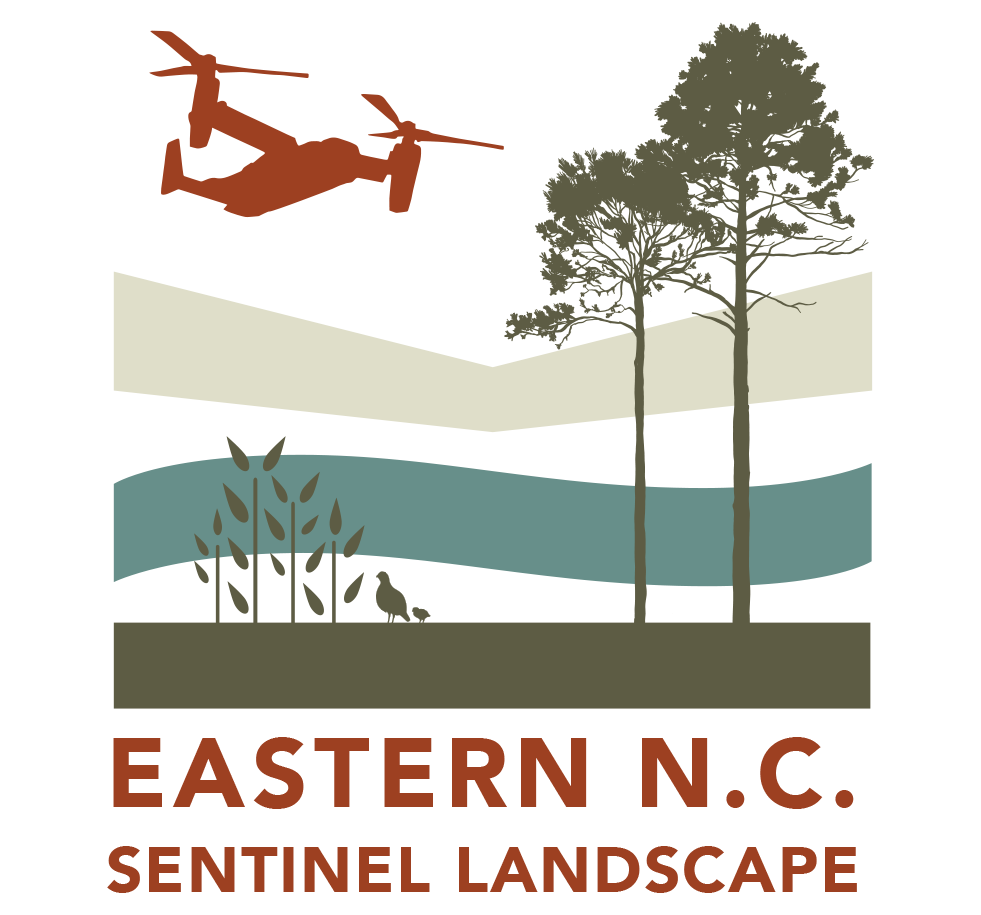FINANCIAL & TECHNICAL ASSISTANCE PROGRAMS
Numerous federal, state, and local initiatives offer financial aid and technical guidance to landowners seeking to implement responsible land management practices. Discover ways in which you can contribute towards creating a sustainable North Carolina for current and forthcoming generations.
STATE & LOCAL PROGRAMS TABLE KEY

| LAND USE FOCUS | ASSISTANCE PROGRAM | ASSISTANCE PROVIDED |
  | Agricultural Development and Farmland Preservation Trust Fund (ADFP) This program provides information and assistance to landowners regarding applications for VADs, EVADs, and Farmland Protection Plans. NC Agriculture Development & Farmland Preservation Trust Fund Administered by the North Carolina Department of Agriculture & Consumer Services. |  |
   | Conservation Reserve Enhancement Program (CREP) Administered by the Natural Resources Conservation Service (NCRS). This program assists landowners in addressing high-priority conservation issues, identified by local, state, or tribal governments or nonprofit organizations. In exchange for introducing conservation practices, farmers, ranchers, and agricultural landowners are paid an annual rental rate. Conservation Reserve Enhancement Program |   |
   | North Carolina Land and Water Fund The North Carolina Land and Water Fund provides grant assistance to conservation non-profits, local governments, and state agencies for the protection of surface waters in North Carolina. NCLWF funds: (1) enhance or restore degraded waters (2) protect unpolluted waters (3) contribute toward a network of riparian buffers and greenways for environmental, educational, and recreational benefits (4) provide buffers around military bases to protect the military mission (5) acquire land that represents the ecological diversity of North Carolina, (6) acquire land that contributes to the development of a balanced State program of historic properties. www.nclwf.nc.gov |  |
   | Conservation Trust for North Carolina (CTNC) Works with landowners to conserve land through conservation agreements. Also supports and represents 23 local land trusts in NC so they can conserve land in the communities they serve. www.ctnc.org/get-involved | |
 | Ecosystem Enhancement Program (EEP) Administered through North Carolina’s Department of Environment and Natural Resources, this program works with willing landowners to improve and protect North Carolina’s natural resources. Land benefits include permanent protection of the property through conservation agreements or through the sale or donation of their land. Ecosystem Enhancement Program |  |
   | NC Cooperative Extension Service All universities engage in research and teaching, but the nation’s more than 100 land-grant colleges and universities have a third critical mission—extension. “Extension” means “reaching out,” and—along with teaching and research—land-grant institutions “extend” their resources, solving public needs with college or university resources through non-formal, non-credit programs. These programs are largely administered through thousands of county and regional extension offices, which bring land-grant expertise to the most local of levels. www.ces.ncsu.edu |  |
 | North Carolina Forest Association (NCFA) Working Lands Trust Serves as a trust fund for organizations and agencies interested in funding the maintenance of working lands, and to facilitate conservation tools for landowners and protection needs for working lands. www.ncforestry.org |   |
 | North Carolina Forest Development Program (FDP) This program is administered by the North Carolina Forest Service. It is designed to encourage private landowners to reforest after harvest and to place their idle and under-productive forestland into full timber production. www.ncforestservice.gov/Managing_your_forest/fdp.htm |  |
   | Eastern North Carolina Sentinel Landscapes Partnership The Eastern North Carolina Sentinel Landscapes Partnership was formed to create innovative strategies for the sustainable landscape needed to promote a healthy economy, environment, military, and community in eastern North Carolina and beyond. The Partnership is currently implementing several important initiatives for eastern North Carolina. The initiatives conserve and protect the interests the Partnership values — working lands, conservation, and national defense. www.ENCSentinelLandscapes.org |   |
   | Present-Use Value Tax Program (PUV) A qualifying property can be assessed for property tax purposes based on its use as agricultural, horticultural, wildlife, or forest land. The present-use value of the land is based solely on its ability to produce income, rather than its market value. Administered by the county assessors. To qualify there is a minimum acreage requirement of ten acres for agriculture, five acres for horticulture, and twenty acres for forest use and wildlife. Other requirements apply. www.dornc.com/publications/property.html |  |
   | Soil and Water Conservation Districts (SWCD) A sub-unit of state government that can assist with implementing ACSP (stands for ?) and provide technical assistance, among other conservation activities. http://www.ncagr.gov/SWC/ |   |
  | Voluntary Agricultural Districts (VAD) A program designed to encourage and protect commercial agriculture. Administered at the county level. A basic requirement is that the land be enrolled in a PUV program or meet other qualifications. www.ncadfp.org |  |
 | Wildlife Conservation Land Program (WCLP) A program that allows landowners who have owned their property for at least 5 years and want to manage protected wildlife species or priority wildlife habitats to apply for reduced property tax assessment. Wildlife Conservation Land Program |   |
Numerous federal, state, and local initiatives offer financial aid and technical guidance to landowners seeking to implement responsible land management practices. Discover ways in which you can contribute towards creating a sustainable North Carolina for current and forthcoming generations.
